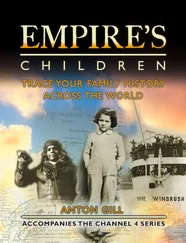color and
complexity of language vs. culture and
concepts vs. labels and
definition of culture and
“freedom within constraints” and
geographic vs. egocentric coordinates and
grammar and
kinship terms and
language as convention of culture and
language as influence on thought and
power of culture and
vocabulary size and
Czech
Danish
Dante Alighieri
Darwin, Charles
“day” and “night” vocabulary
Delitzsch, Franz
De oratore (Cicero)
De vulgari eloquentia (Dante)
dialects
dichromatic vision
diphthongs
Dixon, R. M. W.
Djaru
DNA
Dutch
dyes and artificial colors
Dyribal
Egypt, ancient
Emerson, Ralph Waldo
empiricism
Endeavour River
Engels, Friedrich
English
body parts and
color and
complexity of
concept of “mind” and
definition of culture in
gender systems and
grammar and
influence of
logic and
morphology and
plurality and
pronouns and
verb-noun fusion and
verb tenses and
vocabulary size and
vowels and diphthongs in
environmental determinism
“equal complexity” tenet
Ervin, Susan
Essay Concerning Human Understanding (Locke)
Estonian
ethnic groups
European languages
assumptions about universality and
complexity of, and irregular words
etymology of “blue” in
gender systems in
grammar of
vocabulary size and
evidentiality
evolution
acquired characteristics and
color vision and brain and
natural selection and
theories of color sense and
eye, physiology of
Faroese
Finnish
Fleck, David
“foci”
foreign learners
Fox language
Frank, Michael
“freedom within constraints”
French
gender systems and
grammar and
morphology and
French Polynesia
Fromkin, Victoria
Galibi
Gatschet, Albert
Geiger, Abraham
Geiger, Lazarus
gender markers
gender systems
influence of, on thought
origin and evolution of
sexual equality and
General Anthropology (Boas)
genetics (biological heredity)
German
complexity of
concept of “mind” and
gender systems and
grammar and
morphology of
“when” vs. “if” and
German Romanticism
German textual criticism
Gilbert, Aubrey
Gladstone, William Ewart
Gleitman, Lila
Goethe, Johann Wolfgang von
grammar
Australian aboriginal languages and
Boas on, and what must be conveyed
complexity and
coordinate systems
cultural freedom and
gender systems and
morphology
need for
non-European languages and
structure of, and society
verbs and
“gray”
“-yellow” distinction
Greek
gender systems and
verb tenses and
“green” See also “blue-green” distinction
Homer and
Japanese and
light wavelength of
retina and sensitivity to
“-yellow” distinction
Gurr-goni
Guugu Yimithirr
habitual use
Haeckel, Ernst
Hagenbeck, Carl
Hai||om bushmen
Halevy, Yehuda
Hanunoo
Harvey, William
Haviland, John
Hawaiian
Hay, Jennifer
Hebrew
body parts and
gender systems and
pronouns and
subordination and
verb tenses and
Heine, Heinrich
Helmholtz, Hermann von
Henley, John
Henry VIII, king of England
Herder, Johann Gottfried
Hittite
Hjelmslev, Louis
Hockett, Charles
Holmgren, Frithiof
Homer
“Homme et la mer, L’ ” (Baudelaire)
Hopevale, Australia
Hopi
Hopi Time (Malotki)
House in Bali, A (McPhee)
Hughes, Ted
human nature, See also culture-nature debate
human vs. non-human, gender systems and
Humboldt, Wilhelm von
Hungarian
Hupa
Icelandic sagas
Iliad (Homer)
“improvement through practice” model, See also acquired characteristics, inheritance of; Lamarck, Jean-Baptiste; Lamarckian evolution
India
Indo-European languages
gender systems and
morphology and
verb tenses and
Indonesian
Ingalik
“interference task”
Introduction to Language (Fromkin and Rodman)
Italian
gender systems and
Ivry, Richard
Jakobson, Roman
Jaminjung
Japanese
Jefferson, Thomas
Jerusalem, odes to
Jespersen, Otto
Jesuits
Journal of Ethnology
Journal of the Indian Archipelago and Eastern Asia (Crawfurd)
Kant, Immanuel
“kangaroo”
Kay, Paul
Kayayardild
Kempton, Willett
Kgalagadi
Khetarpal, Naveen
King, Philip Parker
kinship terms
Kipling, Rudyard
Klamath Indians
Konishi, Toshi
Koran
Krause, Ernst
Kutchin
labels
Lagerlunda train crash
Lamarck, Jean-Baptiste
Lamarckian evolution
language(s). See also color; culture-nature debate; grammar; thought, influence of language on; and specific color vocabulary, grammatical concepts, languages, and theorists
brain’s left hemisphere as seat of
complexity of
concepts vs. labels in
coordinate systems in
disappearance of
gender systems in
grammar as necessary to
as lens
as mirror
parts of
perception and
“prison-house” of
structure of society and grammatical systems and
subordination and
two lives of, in public vs. private roles
verbs and
what may vs. what must be conveyed and
lapis lazuli
La Salle de l’Étang, Simon-Philibert de
Latin
Lazarus, Emma
left hemisphere, of brain
left-right asymmetry
Le Laboureur, Louis
Levinson, Stephen
Lévi-Strauss, Claude
Li, Peggy
light
energy of, vs. wavelength
wavelengths of
“linguistic relativity”
“Linguistic Relativity in French, English, and German Philosophy” (Harvey)
Linnean Society
literacy
Lloyd’s List
Locke, John
Louisiana Purchase Exposition (St. Louis, 1904)
low-light vision
Magnus, Hugo
Malay
Mali
Malotki, Ekkehart
Maltese
Manambu
Marquesas Islands
Marx, Karl
Matses
Maxwell, James Clerk
Mayali
Mayan languages
McPhee, Colin
memory
metameric colors
Mexico
Milne, A. A.
“mind,” concept of
missionaries
“monistic view” of universe
monochromacy
monochromatic light
morphology
Moscow Psychological Institute
Most Excellent and Perfecte Homish Apothecarye, The
MRI scans
Müller, Max
Murshili II, king of Hittites
Mycenae
My Sister Life (Pasternak)
Namibia
Napoleon Bonaparte
nativism
natural selection
nature. See culture-nature debate
Navajo
Neruda, Pablo
Ngan’gityemerri
Nias islanders
Nietzsche, Friedrich
1984 (Orwell)
Nineteenth Century, The
Nootka
Norman Conquest
Norwegian
nouns. See also verb-noun fusion
case endings
morphology and
plurality and
“Nubians” exhibit (Berlin, 1878)
“Ode to the Sea” (Neruda)
Odyssey (Homer)
Old English
“On the Color Sense in Primitive Times and Its Evolution” (Geiger)
Читать дальше











